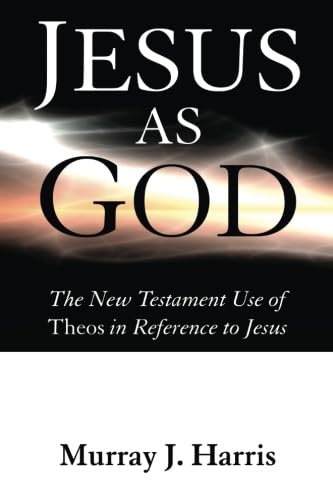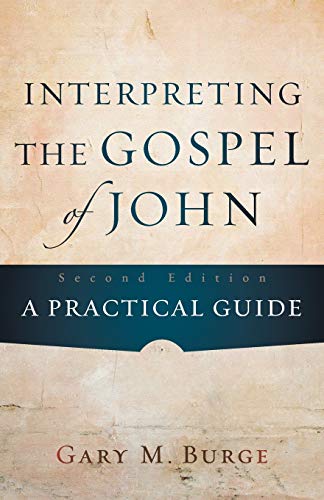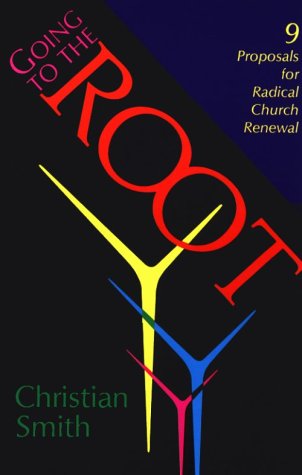Volume 19 - Issue 1
Thinking theologically
By Stephen N. WilliamsLet us start with ‘thinking’. Evangelicals often stand accused of not thinking; they grasp a belief and then cling to it everlastingly with the sweet reasonableness of a terrier dog. Sometimes the criticism is justified. There may be two reasons for such a failure to think, one to do with fear, the other with faith.
Sometimes, those who refuse to think are temperamentally inclined to one-eyed dogmatism. But there may also be a fear that what is held in faith looks pretty suspect in the light of reason. Fear may cause some Christians to take hold of the most detailed tenets of Christian doctrine by the age of 21 and then allow not a jot or a tittle to be removed or changed through a lifetime. Now certainly we must have root Christian convictions in which we should be growing and being strengthened without wavering. But total intellectual immutability amounts to a claim to intellectual perfection within the limits of time—and, of course, if we have attained that, there is no further need to think. But Jesus Christ liberates us from the fear that often underlies such attitudes and produces in its place the first intellectual virtue—humility.
Humility is actually a spiritual virtue which we must cultivate in the realm of thought. Of course, humility can be abused. G.K. Chesterton lamented that we are producing a breed of person too mentally modest to believe the multiplication table. Humility can lead us to assurance, rather than the lack of it, for we should be humble enough to acknowledge truth when it shines in its power. Serious thought is always humbling, for it forces us to accept that we can’t figure everything out. But if we remember that ultimate truth is in him who is the same, yesterday, today and forever, then we need not be anxious about our thinking, for there is no corner of the world or of the mind where God is untrue.
A second obstacle to thinking is a mistaken view of faith. Is Christianity not a matter of faith, not reason? Do not ‘thinkers’ overestimate worldly wisdom and displace the ‘folly of the Gospel’? The issue of faith and reason is an ancient one, but our concern here is with the kind of thinking that goes on within faith, not in conflict with it. It is natural and right for faith to seek understanding. Take for example, sexual ethics. One may believe on biblical grounds that heterosexual marriage is the normative context for sexual relations. Commitment to such conviction does not await full understanding of all the reasons. But it is a good and vital thing for theological thinking to reflect on the ‘why’ of such biblical injunctions, and that reflection may draw other social and psychological factors into its reasoning. We may not finally understand everything, but what we do understand will strengthen faith and obedience. God’s word always leads us into deeply integrated personal and social living, and reflection upon it will honour, not subordinate, faith. Indeed, the Bible itself often gives reasons for its instructions and appeals to our thinking (Deuteronomy and the Wisdom Literature spring to mind).
This invites us to connect our theological thinking with our personal experience. Pure thought on profound realities will not long stay pure or illuminating if not nourished by experience. Many people fear that evangelical students studying theology will capitulate to liberalism. They are less watchful of the danger of a student retaining evangelical beliefs but drying up spiritually and losing all vital experience of God. We can use all the pious vocabulary, yet get more enjoyment from books on the atonement than from the company of the Saviour. But when that happens, theological thought itself also suffers because the subject matter of theology cannot be understood merely by informed reflection. One may, for example, knock one’s head against the wall trying to relate sovereign grace and human responsibility. But experience soon teaches us that when we do right we cannot congratulate ourselves and when we do wrong we cannot blame God. Both realities coexist in experience. This is not to use experience as an excuse for theological self-contradiction, but rather to say that important distinctions and nuances are only grasped fully in experience, and not by mere reflection that ignores it.
Let us now turn to the word ‘logically’ which is compounded in the word ‘theologically’. Logic plays a part in all reflection in one way or another. It may play tricks on us. And it can be abused, too, to enable somebody to win an argument through superior debating skills without necessarily possessing the truth. But human thought is often a process of argument with oneself, and in that sense logical thought matters a lot.
Logical thought means that the right word is more important than the big word. Theological students revel in words like ‘heuristic’, ‘staurocentric’, ‘hominization’, ‘existential’. But it is more important, first of all, to be able correctly and clearly to use ‘but’, ‘however’, ‘therefore’, ‘thus’, ‘although’, ‘if … then’, ‘so’. For these are the terms that help us grasp, or express, the logic of an argument, and not just be swayed by its rhetoric or conclusion. God, who gave us brains, expects us to use them clearly, to illuminate, not to obscure, to discern and discriminate, not to confuse and confound. The exercise of sanctified logical thought is an important part of the spiritual warfare required of all who engage in the battle for the truth. The apostle Paul is the clearest example of sharp and profound theological argument, linked to passion, devotion and personal experience. In our theological writings (from essays to encyclopaedias) we should, like him, prefer five clear words of sound meaning to a thousand words of profound woffle.
As to subject matter, our theological thinking should be directed to themes of importance. James Cone, the black theologian, once said that western theologians had spent more energy over the problem of relating the Jesus of history to the Christ of faith than the theological problem of world hunger. This does not deny that the first is important, but we should not be blind to pressing issues that require theological reflection also. It could be added that many theological courses require students to interact more with western theologians long dead than to listen to the living voices of theologians in other parts of the world addressing contemporary issues. If the living God is concerned about living issues (such as dying people), then theology should not give the impression of living in an academic cemetery. Theology is an activity in the service of God and neighbour, so what it means to love both in our global village must affect the themes on which we concentrate our theological thinking.
The scope of our theological thinking must be totally comprehensive. Many of us foster attitudes on child-rearing, use of money, Sunday, humour, sport, political questions, the economy, and many other things—attitudes that are somehow exempted from serious theological scrutiny. ‘Theological’ unfortunately sounds intense, grim and kill-joy. But why give in to that stereotype? When theological thinking is a matter of thinking in the light of God’s self-revelation and to his glory, then it will neglect literally nothing in the world, any more than we feel free to pick a few Christian virtues and abandon the rest.
The dynamic of our theological thinking should be loyalty to Christ himself, not positions or systems. Our thought must be governed by a Person, not an idea. Paul spoke of ‘the mind of Christ—an understanding that emanated from the risen Lord himself. Logical skill and intellectual brilliance do not get near this; only purity of heart gets close. And when we are not certain as to what we must learn from Christ (which is not at all to set Christ against the Bible or the apostles), let us feel no qualms about being uncommitted or undogmatic. Where there is pressure (as there often is in student circles), to be dogmatic on a range of questions, however complex and in need of mature judgement, the outcome is often not so much theological thinking as a hybrid of speculation, pious guesses, nonsense, gross arrogance and occasional nuggets of truth!
Finally, remember that theological thinking is not the same thing as theological reading! Some students read too much and think too little. In the words of the author of The Imitation of Christ, on the last day we shall be asked what we have done, not what we have read. Or course thought can also displace action. But it will never do so while we hold together the great commandment to love the Lord our God with all our mind and to love our neighbour as ourselves.
Stephen N. Williams
Stephen Williams is professor of systematic theology at Union Theological College in Belfast, Northern Ireland, and served as general editor of Themelios from 1995 to 1999.






